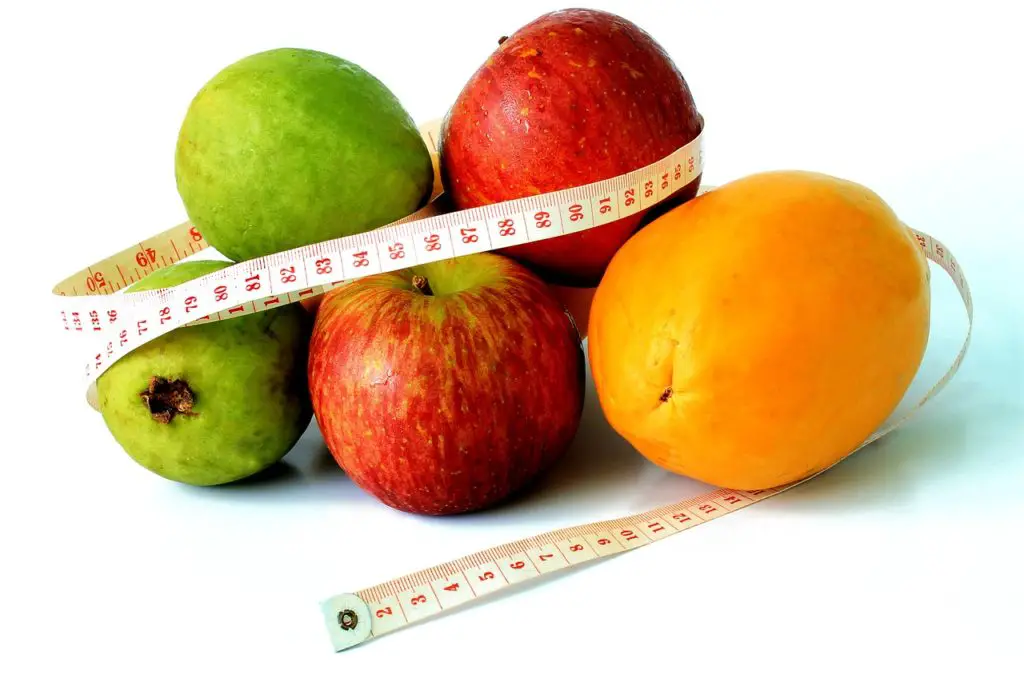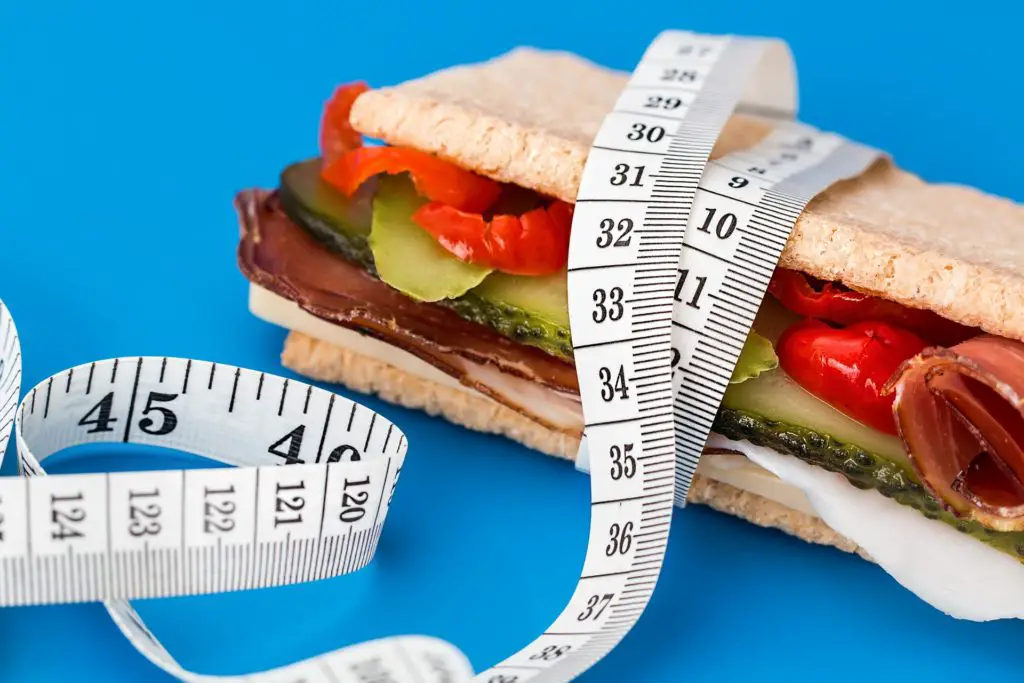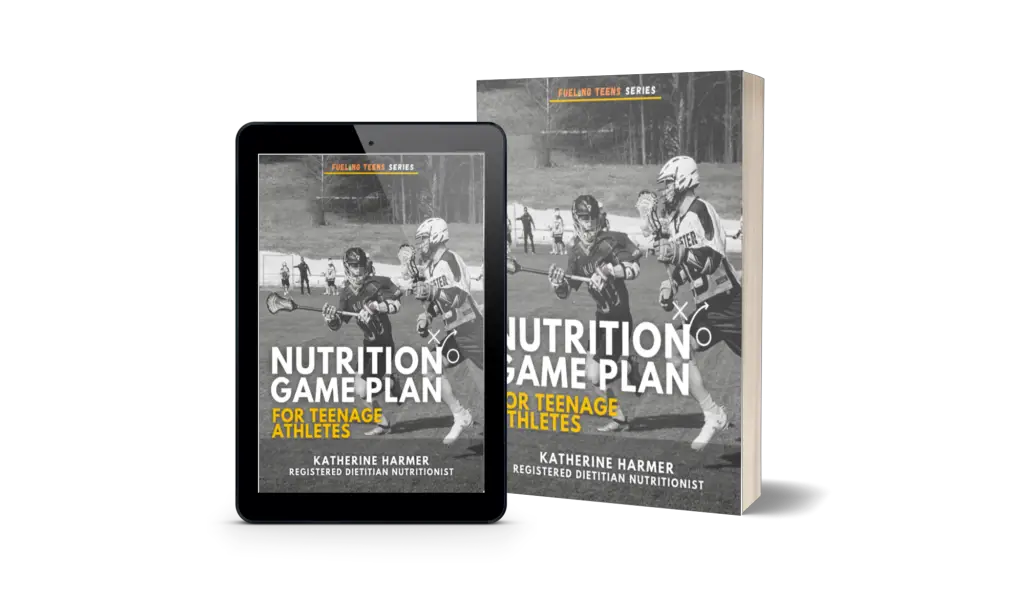Weight can be a concern for teenagers or their parents. Despite wanting to slim down, bulk up, or work towards other health goals, is it ever appropriate for a teenager to track calories? In such cases, should a teenager consider keeping track of what they eat and counting calories?
As a dietitian, I don’t recommend for any adolescents to keep track of daily calories. Focusing on tracking food intake all day could become an obsessive habit and turn into an unhealthy focus on food choices and portion sizes. Tracking calories can be beneficial to get an idea of overall trends.
However, getting an overall idea of food trends, choices, and amounts can be beneficial. Under the supervision of a Registered Dietitian Nutritionist or physician, an occasional food log may be beneficial for teenagers. This way they can keep track of food choices and rough amounts, but not stress about calories.
The teen years are the best time for kids to learn the skills for lifelong healthy food habits. Keep reading to learn more about the benefits and any risks for teenagers that want to count calories. Learn tips and tricks and better alternatives to make sure your teen develops a healthy relationship with food that will benefit them long-term!

Counting Calories For Teenagers
Counting calories may at times be helpful for adults, to lose weight, help manage a disease, or to build healthier awareness and overall eating patterns around food.
However, most teenagers are in the stage of life where they should be developing healthy eating habits. They shouldn’t be extremely-focused about what and how much they are eating.
Typically, I don’t recommend teenagers count calories. It could become an obsessive habit and turn into an unhealthy focus on food and amounts. Tracking food and calories can be beneficial and informative on occasion, by helping to learn an appropriate calorie level depending on growth and health goals, and to get an idea of trends and habits, but I wouldn’t recommend it long-term.
It’s best for teenagers to learn to eat an appropriate amount of food and nutrients at appropriate times throughout the day. A good balance of food and meals will supply all the nutrients they need.
Best Apps for a Teenager to Count Calories:
In the few cases where a teenager should count calories, as recommended by a physician or registered dietitian nutritionist, there are several ways to do it. You can use an app that scans bar codes and calculates your nutrient totals once you search for the foods you eat.
You can also keep track of the food and amounts you eat on a food log and then input the data into a calorie calculator. Unfortunately, many food tracking apps have age restrictions of age 18 and older.
Be careful of what apps you do let your child use. Some food tracking apps for kids and teens are actually diets in disguise. They can lead to unhealthy eating habits, teach stressing about food choices, and overall they just want your money (e.g. I’m not really a fan of the new Kurbo Weight Watcher’s App for kids. It has some of these factors and criticizes food choices).
I’m still in my “research phase” of finding the best calorie tracking apps for teenagers and kids. I’ll share my results soon!……….
Alternatives to Calorie Counting for Teenagers:
If teenagers want to track food intake, a food log may be more appropriate. Typically it would be a sheet of paper, or a document on their phone, and the teen can write in the foods they eat for meals and snacks.
A dietitian or physician might recommend using a food log if there are concerning lab values, nutrient deficiencies, difficult-to-diagnose stomach problems such as IBS, possible allergies or food sensitivities, or weight concerns.
A blank food log might look something like this:
| Monday | Tuesday | Wednesday | Thursday | Friday | |
| Breakfast | |||||
| Lunch | |||||
| Dinner | |||||
| Snacks |
Also, strict meal plans are not usually necessary for teenagers. Strict food plans can lead to lack of choices and food restriction. However, some meal plans are helpful and can give great ideas for a healthy balance of types and amounts of foods for recommended calorie levels throughout the idea. I occasionally write meal plans examples to help get you started with your own health goals.
Check out some of my free meal plans (these can easily be adapted to any teen, athlete, and activity level):
- Football Meal Plan
- Basketball Meal Plan
- FREE Downloadable Meal Plan for Teen Soccer (Football) Players
- Best Meal Plan for Teenage Athletes
- and check back for more!

Is Dieting Appropriate for Teenagers?
During the teenage years, a major growth spurt occurs. Teens often have increased appetites and may become heavier before their height catches up. This can cause some concern for parents. Learn how to deal correctly with these changes to set your child up for success.
Before turning to diets and food restrictions to help your teenager slim down, look at growth charts and the overall pattern of your child’s growth. Track weight and height on a growth chart overtime with the help of a medical professional. The overall growth trends will be more important to alert of any potential changes that need attention.
Try not to stress, check in with your doctor and a Registered Dietitian Nutritionist, teach your whole family (don’t just single out one child) about healthy eating habits, and implement some more mindful and healthier focuses for the whole family.
Teenagers shouldn’t necessarily try to lose weight, but instead the goal is to grow into their weight as they get taller. Even if your teen is obese this still may be the overall goal, but work with medical professionals to monitor your child correctly.
Weight loss for a teenager is only sometimes appropriate. Your child is growing and developing, and any food restriction and focus on dieting may only cause nutrient deficiencies and disordered eating habits.
How to Raise Healthy Teens – Tips for Parents:
The Role of Parents: The parents should establish healthy habits and be good examples at home for their teens. They are the most influential examples to teaches healthy eating habits and demonstrate behaviors of having positive relationships with food and weight.
If teenagers have poor examples at home (family members that are constantly dieting, complaining about their weight, restricting food, etc.), they could suffer from poor eating habits, low self esteem, an unhealthy relationship with food, and disordered eating problems.
Body image is a concern for teenagers as they start to care more about the way they look. It is common for teenagers to have an unhealthy relationship with food. 20 percent or more teenagers are obese, and many teenagers have an eating disorder.
Here are a few tips that are important for parents to practice at home to build healthy eating habits for their teen and for the whole family:
- Regular Check-ups- Check in regularly with the doctor to monitor your teen’s growth and trends
- Create a Positive Atmosphere at Home – Establish positive eating changes for the whole family. If one child needs to focus on weight, the whole family should eat healthier- not just one child.
- Responsibility of Parents- The parent is the “gate keeper” and decides what foods are available at home and what foods are offered and when.
- Make Healthier Foods Easily Accessible- Your teen is more likely to go for the quickest ready-to-eat snacks. Store cut up fruits and veggies in the fridge with dips and keep other quick ideas on hand like yogurt with granola and fruit, whole grain crackers and cheeses, whole grain cereals, dried fruit and nuts, etc. Limit highly processed snack foods in the home and offer many varieties of fruits and vegetables and whole grains.
- Set Rules for Snacking- Your teenager probably stays near the fridge or pantry whenever they are home. Don’t allow “grazing” all day long and set some rules for snacks. I have a lot of good snack ideas here.
- Be Active as a Family– Plan fun physical activity as a family. Limit screen time and set rules for TV, computer, and phone use.
- Eat Together- Strive to have regular family meals at home. It is extremely helpful for adolescents to be able to connect with their parents and families over the dinner table and have positive conversation around food. Be supportive and talk with your kids. Have your kids help you plan and prepare some of the foods.
- Be a Positive Role Model- Avoid dieting in front of your children and talk about yourself positively. Having a positive body image will be one of the best examples you can give your children.
- Don’t Make Weight a Big Deal- If weight is a problem for a teenager, do not comment on their weight or physical appearance or complain about their food choices. Parents who restrict food can actually cause their child to be heavier in the long run.
There’s a lot of things to think about. Chances are you aren’t perfect and that’s OK! Choose one thing to work on as a family and be a little better today than you were yesterday.
Have positive conversations with your children about food and make meal preparation and meal times a positive experience as a family. Instead of teaching your teenager to diet, it would be much more beneficial to teach them healthy cooking skills, grocery shopping habits, and how to read the new nutrition facts label.
Related Questions
How Many Calories a Day Does a Teenager Need? High school girls usually need around 2,000 calories per day and high school boys usually need around 2,800 calories per day. Active teens typically need more calories. Calorie needs for teenagers depend on several factors including age, gender, weight, height, and activity level.
Check out my post How Many Calories Should A Teen Athlete Eat? for a more detailed estimate for daily calorie needs.
How Many Calories Should A Non-Active Teenager Need? Non-active teenage boys from ages 13-19 need about 2,000-2,600 calories per day. Non-active teenage girls need about 1,600-2,000 calories per day.Teenagers that have less than 30 minutes per day of activity need less calories than more active teens.
Check out my post here to see a detailed calorie recommendation chart based on age and different activity levels.
Should Teenage Athletes Count Calories? Calorie counting can be helpful for high school athletes to make sure they are eating enough food and eating often enough throughout the day. I wouldn’t recommend for teenage athletes to track calories daily. A few regular days per month of tracking is sufficient to give an idea of trends and habits.
Athletes may want to track their calories occasionally to get an idea of recommended calorie levels. Some sports are more likely to have athletes with eating disorders and coaches and parents should teach healthy eating habits.
How Many Meals Should a Teenager Eat a Day? Teenagers should eat about every 3-4 hours depending on how active they are. Typically 3 meals per day and 1-3 snacks is recommended for a teenager. Breakfast and lunch are important meals for growing teenagers and shouldn’t be skipped. It might be appropriate to bring snacks to eat during class breaks during the day.
Is it Bad to Diet as a Teenager? Instead of following a fad diet, choose a meal or two per day to focus on healthier choices such as a few more servings of vegetables, whole grains, and unprocessed foods. It’s usually recommended to track weight and height with your physician and registered dietitian.
Hardly any teenagers need to go on a strict diet (but all teenagers should strive to eat healthier). The goal is not to lose weight, but to grow into their height. As a teenager, my mom did a good job of teaching good habits and having healthful food at home. I was able to limit many processed foods and I filled up on meals of cooked grains, lean meats, vegetables, beans, low-fat dairy, and fruit.
Fueling Teens eBooks
Need more help with your diet this season? Get help from a registered dietitian nutritionist, check out my newest eBook: Nutrition Game Plan for Teenage Athletes
Includes:
- 40+ pages with insightful infographics
- 28-day meal plan to help you eat well and eat right
- Healthy Snack list
- Tips for Gaining or Losing Weight
- Calculations for Daily Calorie Needs, Protein Needs, etc.
- Supplement Recommendations
- Meal Schedule
- …And More
Also Available From Fueling Teens:
- FREE Downloadable Meal Plan for Teen Soccer (Football) Players
- Nutrition Game Plan for Teenage Basketball Players
- Nutrition Game Plan for Teenage Football Players
See Also
- How Many Calories Should a Teen Athlete Eat?
- How Many Calories Does a High School Football Player Need?
- Sugar-Free Kids? The Problem with Artificial Sweeteners for Children and Teens
- Is it OK for Teens to be Dairy-Free?
- Is Creatine Safe for High School Athletes?
- Is Whey Protein Safe for Teenage Athletes?
References
The Academy of Nutrition and Dietetics. Your Pre-Teen’s Weight. Reviewed by Esther Ellis, MS, RDN, LDN. Published December 3, 2019. https://www.eatright.org/health/weight-loss/your-health-and-your-weight/your-preteens-weight
By Katherine Harmer, RDN
Fueling Teens is a participant in the Amazon Services LLC Associates Program, an affiliate advertising program designed to provide a means for sites to earn advertising fees by advertising and linking to Amazon.com. We also participate in other affiliate programs which compensate us for referring traffic.


